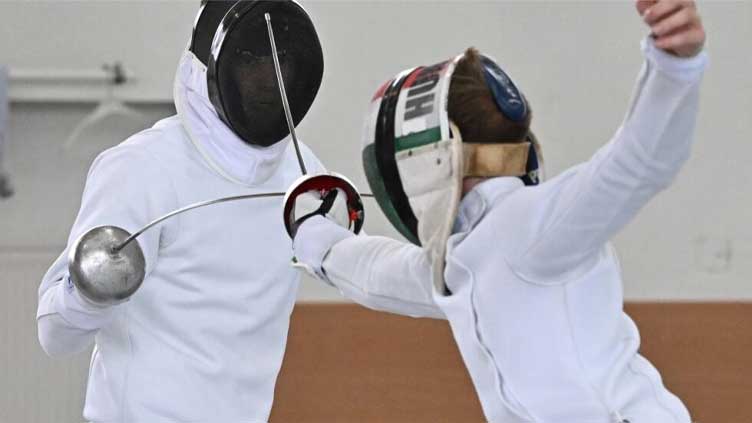Top Hungary fencer Siklosi eyes success on road to Olympics

Sports
Walls at the Aladar Gerevich National Sportshall are testament to rich Hungarian fencing tradition
Budapest (AFP) – At Hungary's national fencing centre in Budapest the latest Hungarian fencing star, world epee champion and Tokyo Olympic silver medallist Gergely Siklosi, strides among the rows of pistes with ease.
The walls at the Aladar Gerevich National Sportshall are testament to the rich Hungarian fencing tradition, lined with portraits of champions like Aron Szilagyi, a three-time Olympic sabre gold medalist.
In 2019 another portrait was added, that of the tall 25-year-old Siklosi, beaming on the podium as he proudly displays the gold medal he won in that year's World Championships in Budapest.
"Winning before a hometown crowd was a goosebumps feeling that is hard to beat," he said.
He adds that he sorely missed the spectators at the fan-free Tokyo Olympics, which was delayed for a year due to the Covid-19 pandemic.
Radiating calm and composure Siklosi recounted an incident in Tokyo that endeared him to Hungarian fans when he winked at the television camera even though he was trailing his opponent during a last-eight bout.
"I winked to my people watching on TV as if to say 'I got this'. I had so much confidence at that time, even if I lost, I would have been like, it's okay," he said with a laugh. But his approach to his second Olympics next year in Paris will be different, he told AFP: "(I am) still loving the sport but more serious, not just fun and games".
"I represented my country well the first time. Second time round I have to do the same or better," said the fencer, currently ranked world number two. He is expected to warm up for the Olympics at this year's World Championships in Milan at the end of July.
'This is me'
As a youngster Siklosi dabbled in several sports like football, handball, and judo, before settling on fencing. "When I first tried it, I felt like 'this is me'," he said.
"Fencing is not only about physical or technical capabilities, it's also about mind games. It's not the fastest or the strongest who wins. It's the one who can put the whole cake together," he said.
"I was doing it for fun until around 14 when I beat the Hungarian number one at that time, and realised that this is serious, for real," he added. Despite a tough training schedule and pressure to qualify for the Paris Olympics, Siklosi says he can handle the stress.
Last month his Olympic teammate, the swimming star Kristof Milak, who won 200 metres breaststroke gold at the Tokyo Games, pulled out of upcoming world championships in Japan citing mental and physical fatigue. But Siklosi has an antidote to burnout.
"The main focus is to enjoy what you do. It's hard at swimming I think, but fencing is an enjoyable sport, that's why I'm not getting so tired of it.
"When you get on the piste, you can play with an epee just like it's football or handball or basketball," he said, adding that taking a long break each year is a key part of his regime. "Every year I have three weeks for myself when I don't fence or train, when I turn off the whole thing," he said.
A recent convert to cycling, Siklosi enjoys long spins in the saddle. "It's basically training without fencing, and also chill," said Siklosi, who serves in the Hungarian Army's Sports Squadron and in 2020 underwent five weeks of basic military training.
Still, he has had to cope with a niggling foot injury this year. "I've always been optimistic. I'm not happy about my injury, but I always try to look on the bright side, how will I get better from it," he said.
"I come to training to strengthen my weaknesses. And when I'm healthy again, I can be 120 percent and then beat everyone," he said.

